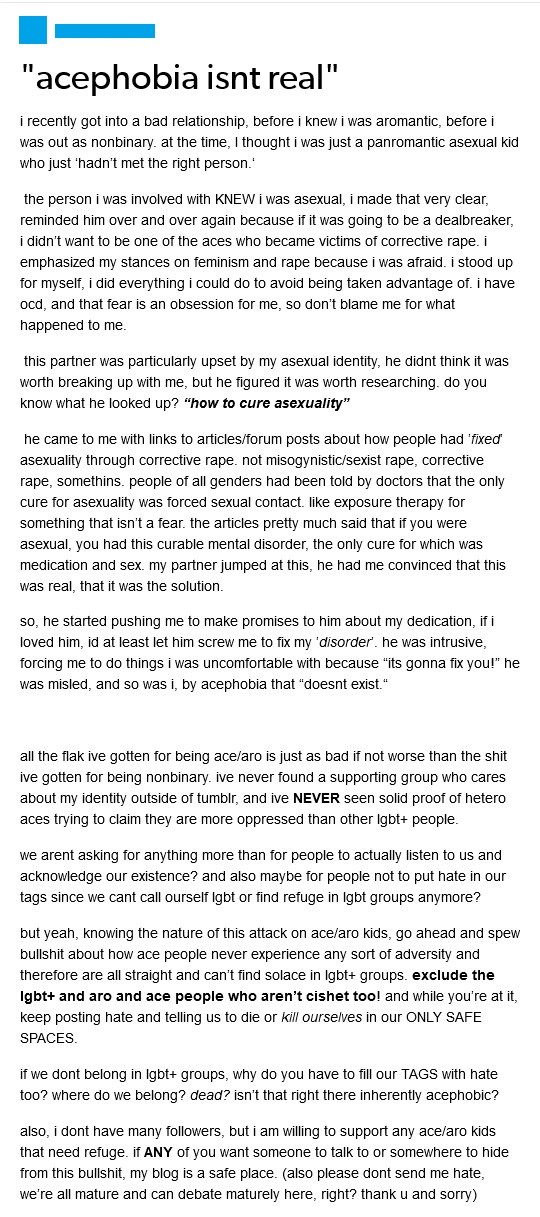Asexuality and Rape
Excerpts:
«That problem is how asexuals are exceptionally prone to the outskirts of the rape culture when they interact with and date sexuals. This is especially true of romantic asexuals.
Now what I mean by this is not that they are especially prone to forcible rape and the types of rape we most focus on when discussing rape, though these occur far too often and can affect asexuals just as much as sexuals.
What I mean are coercive rapes. Those where one’s autonomy and free choice is put to intense pressure and manipulation in order to force a technical consent, which is nowhere near the gold standard of mutual enthusiastic consent or informed consent. This can occur in many forms:
– Using alcohol to try and remove ability to withdraw consent
– Stating that whether one’s partner loves you or not is wholly dependent on whether or not they put out.
– Wearing down resistances to no so they accept to shut you up.
– Lying about the effects of sex without desire in order to manipulate a partner into giving sex.
– And using cultural memes towards how sex is owed to your partner to exact sex from an unresponsive and not-enjoying-it partner.
As well as many others.»
«And asexuals may just be another victim of this idea that “yes should be a default” in a committed relationship, but they are one especially prone to it. Not only are they ones for whom the default is usually no, but they are usually ignorant about the “accepted rules” most sexuals use to navigate the rape culture.»
Read the whole article here.








